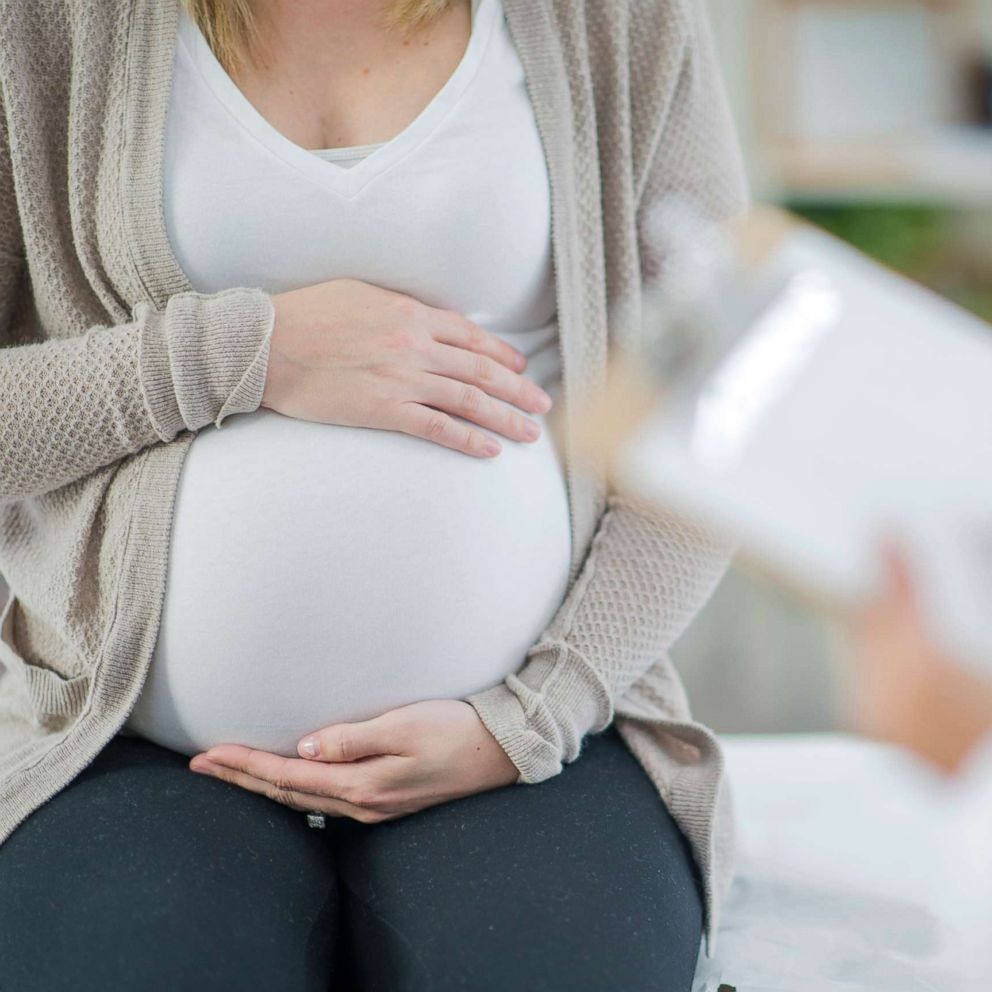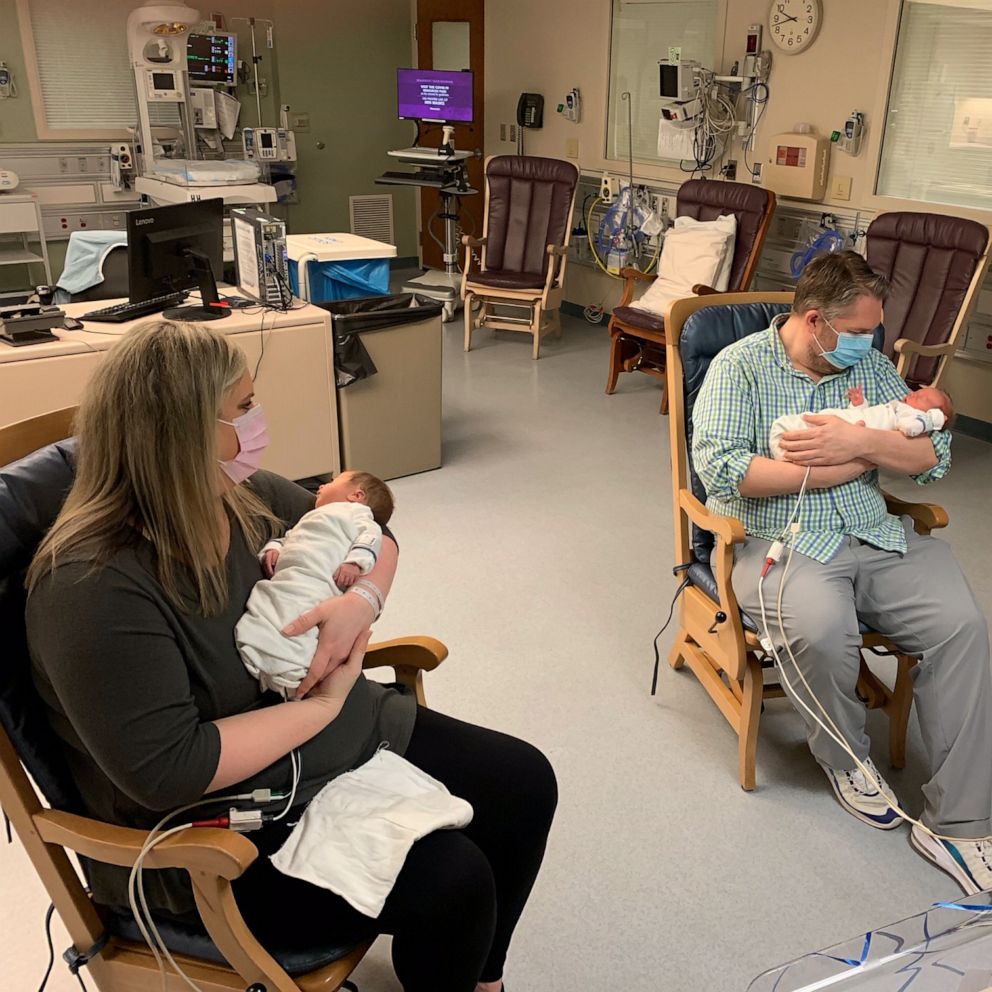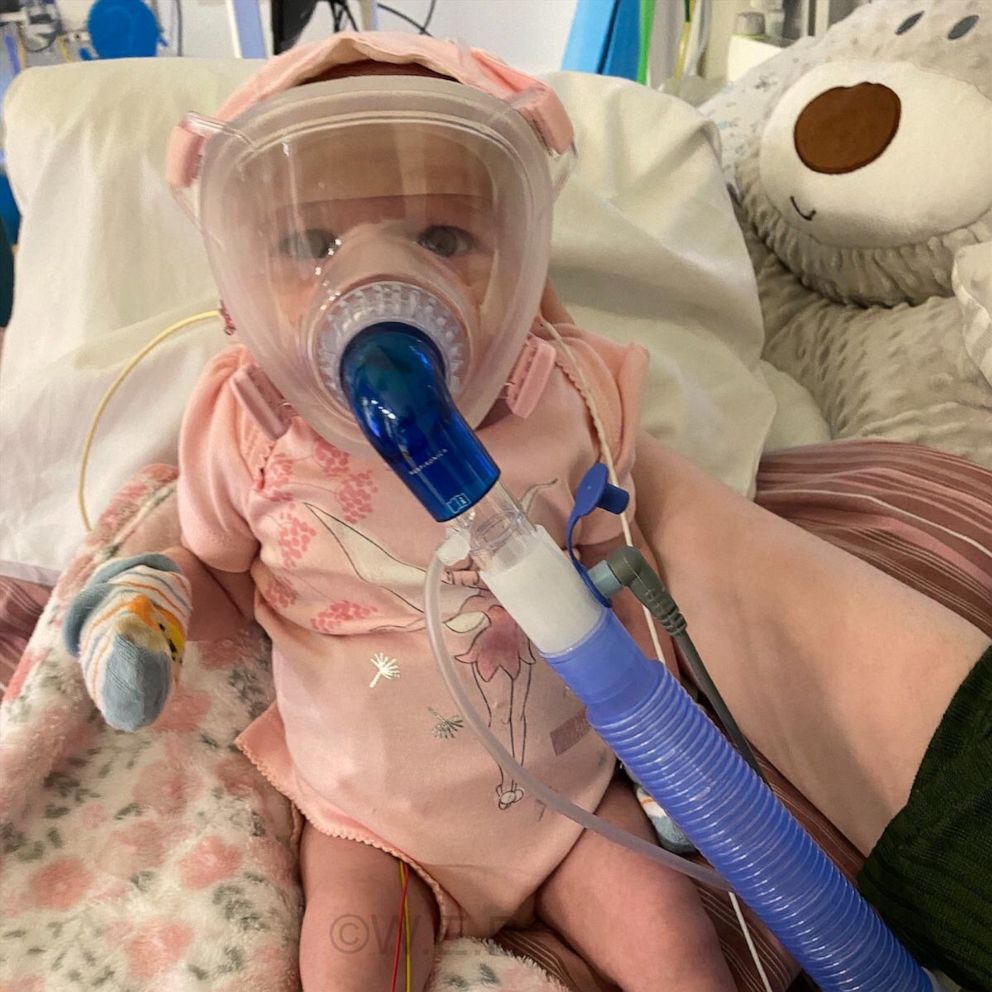I lost my pregnant wife to COVID-19. This is what I want people to know.
More than 26,000 pregnant women in the U.S. have had COVID-19.
Juan Duran-Gutierrez is now a single father raising three young children, including a newborn, after his wife, Aurora Chacon-Esparza, died of COVID-19 during the global coronavirus pandemic.
Chacon-Esparza was healthy and following safety precautions, according to Duran-Gutierrez, when she contracted COVID-19 in June while seven months pregnant with the couple's third child together.
"I really thought she was going to pull through," Duran-Gutierrez, of Minnesota, told "Good Morning America." "She’s always been a really strong woman. She didn’t have any pre-existing conditions. She was healthy."
Chacon-Esparza, who would have turned 36 in August, was hospitalized on June 14 after one week of isolating with COVID-19 symptoms at home, along with other family members who had also been exposed to the virus, according to Duran-Gutierrez.
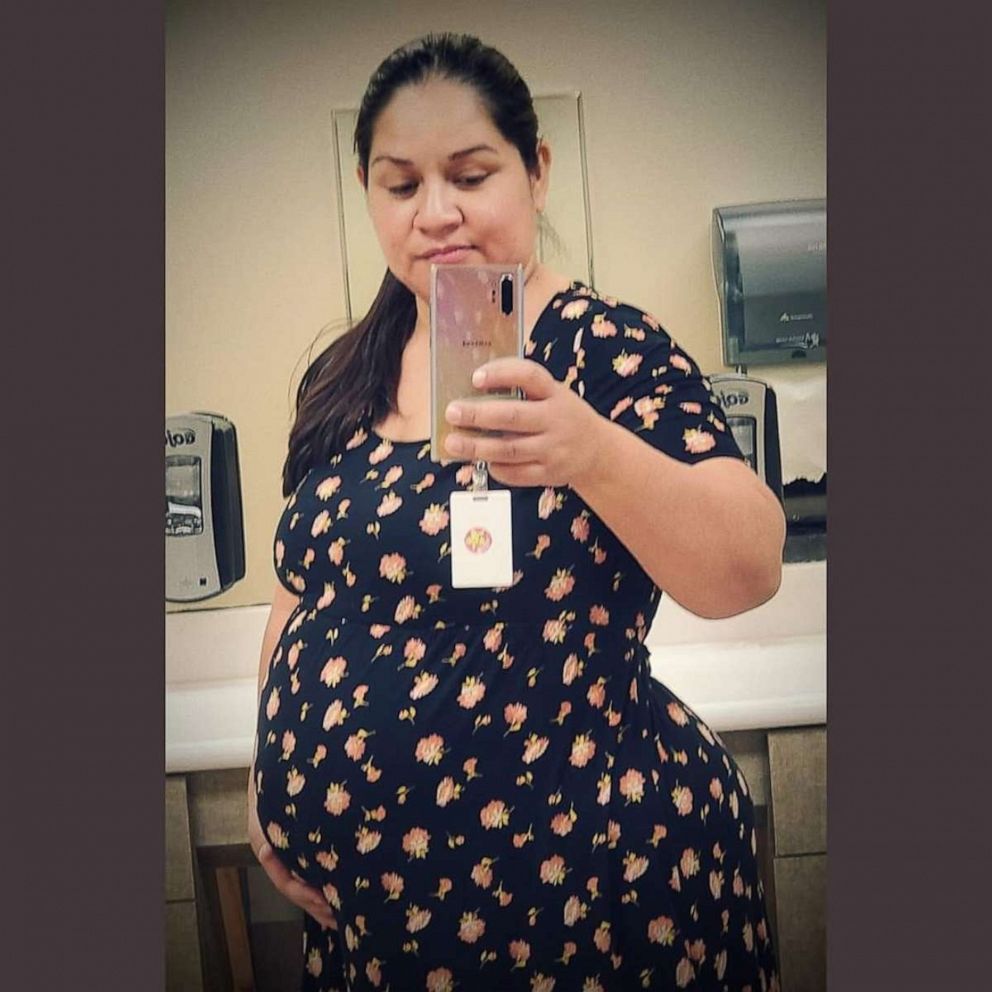
Just around five days later, Chacon-Esparza was placed on a ventilator.
"She continued to get short of breath and her lung disease worsened to the point where she was struggling to breathe," said Dr. Todd Stanhope, the OBGYN who treated Chacon-Esparza at North Memorial Health in Brooklyn Center, Minnesota. "I counseled both her and Juan the day that she was intubated that she was struggling to breathe and without intubation, she would have exhausted herself trying to breathe."
Shortly after being intubated, Chacon-Esparza had to undergo an emergency cesarean section to deliver her third child, a healthy baby girl that Duran-Guiterrez named Andrea.
The baby, who tested negative for COVID-19, was born at 30 weeks weighing 4 pounds, according to Stanhope, who performed the emergency C-section.
Less than one month after giving birth, Chacon-Esparza passed away, leaving behind a husband, three children ages 7 and younger, two older stepchildren and her extended family.
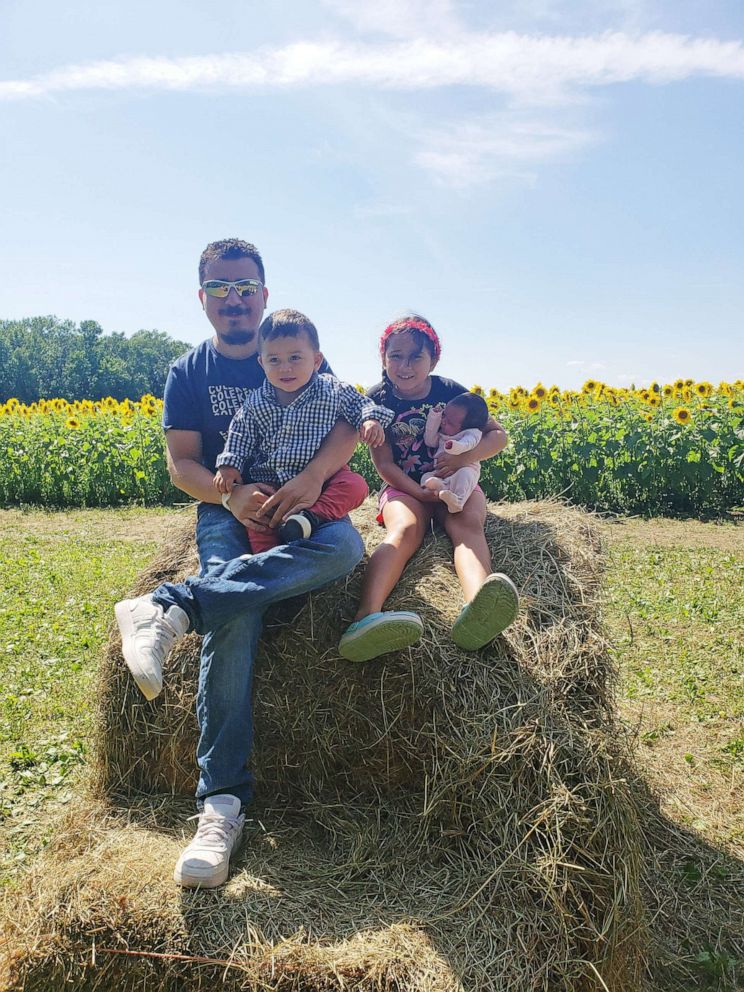
"I thought until the end that she was going to make it," Duran-Gutierrez said of his wife, whom he was able to finally see in the hospital just before she passed away. "I was holding her hand and talking to her."
"She really took care of herself," he said. "She protected herself whenever she went out, I’m talking face masks, and she had a whole bunch of hand sanitizers and hand wipes in her SUV, so she was really taking care of herself."
The impact of COVID-19 on pregnant women
Just as Duran-Gutierrez, a Lyft driver, is now looking ahead to his future as a single dad, he is also coming to terms with what he now knows about how COVID-19 affects pregnant women.
"For pregnant women, be very careful," he said. "I’m not trying to alarm anybody when I share this story. I don’t want pregnant women to feel like it’s going to happen to them, but they should take all the precautions because it could happen to them."
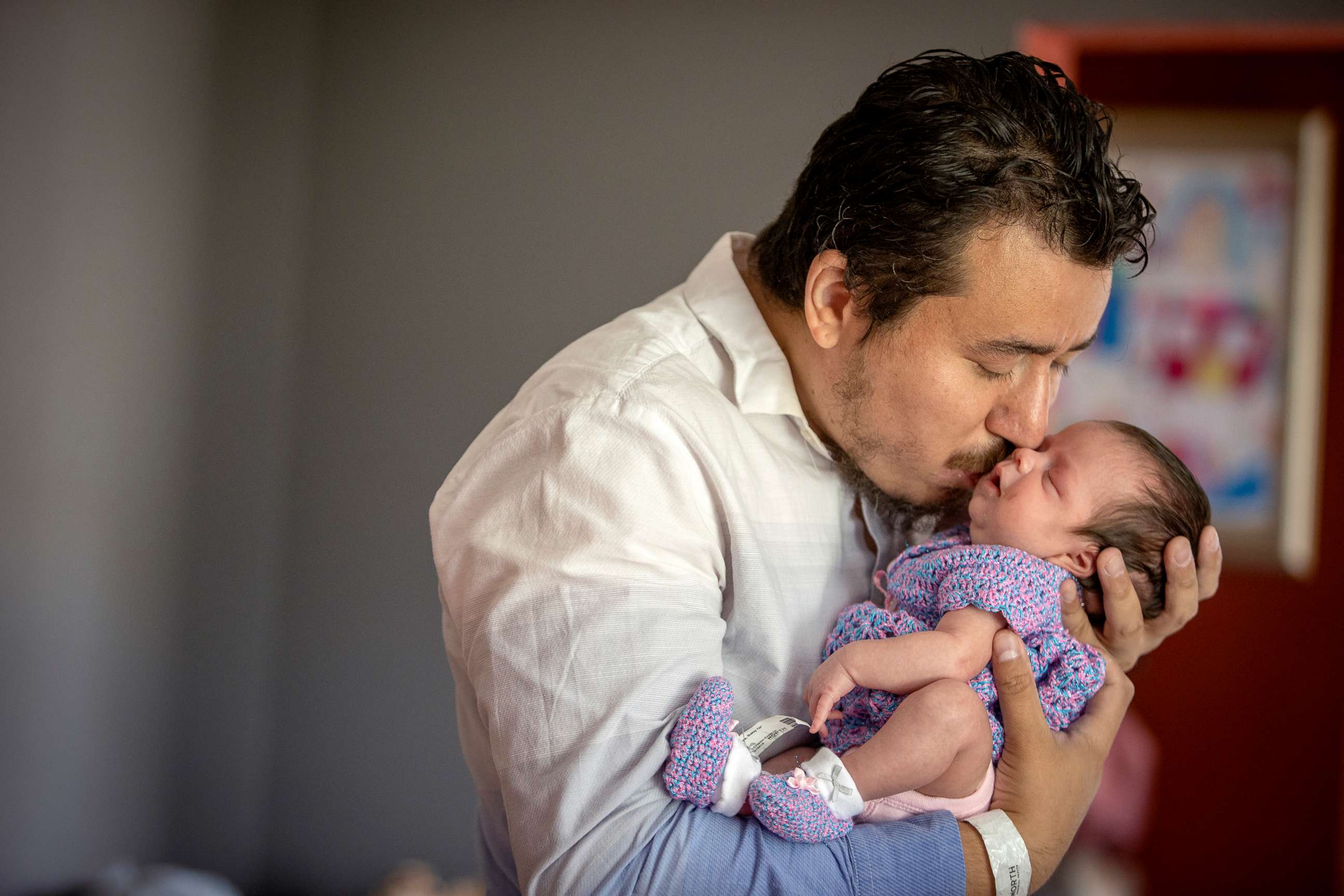
For 35-year-old Ruth González Esparza, her bout with COVID-19 came in the 38th week of her pregnancy.
The mother of two told “GMA” through a translator that she never thought she would be infected by the virus, though she was admitted to Denver Health in Colorado, after having a sore throat. She tested positive for COVID-19 immediately following the birth of her son, Jose Luis Sanchez González, on March 31.
Esparza had a normal labor and delivery with no symptoms, according to Denver Health. It was only after her delivery that Esparza began feeling symptoms that included fever, cough and muscle pain.
"I also had high blood pressure and the baby’s heart rate was very low," Esparza said, adding that she was afraid, even for her 5-year-old daughter who was at home.
"We didn’t know this could happen to us," she said. "You immediately think the worst and all the news scared me even more."
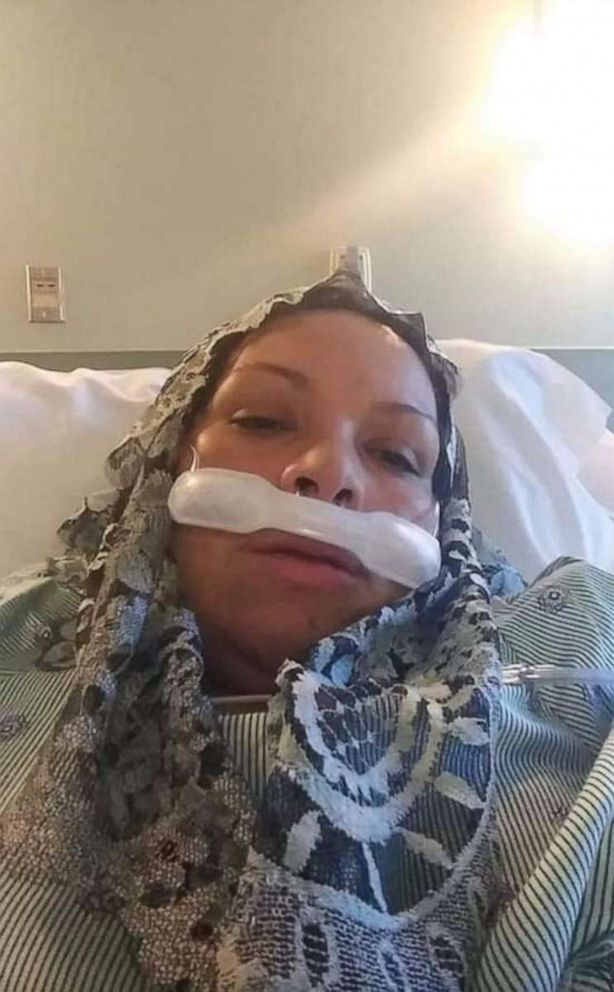
Esparza was one of the first mothers to have COVID-19 at Denver Health. After she tested positive, she was intubated in the intensive care unit for two weeks and separated from her newborn for one month.
Esparza made the decision to separate from him for protection.
"I felt mentally very sad, depressed, scared because even though I had a lot of faith in God, I was scared; every day I didn’t get better is another day that I felt more sick, more tired and the only thing that keep me going was the calls with my mom, with my husband and with my daughter, Kerem," Esparza said.
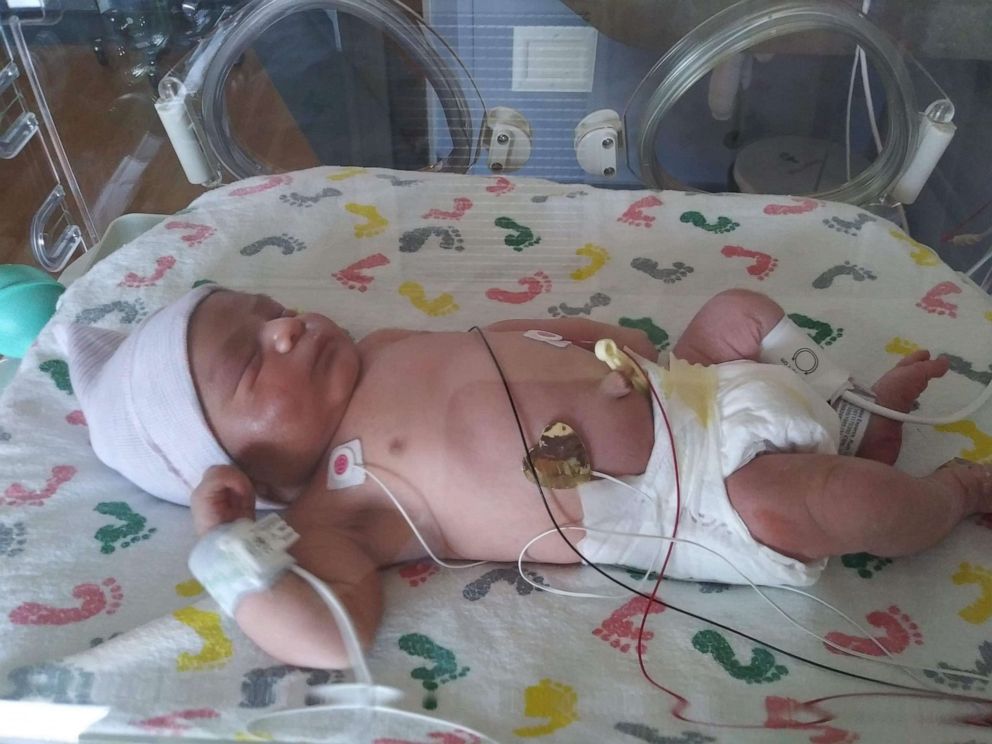
More than 26,000 pregnant women in the United States have been diagnosed with COVID-19 since January and 45 pregnant women have died due to complications from the virus, according to the U.S. Centers for Disease Control and Prevention (CDC).
Among the diagnosed cases of pregnant women with COVID-19, an overwhelming majority were, like Esparza and Chacon-Esparza, women of Hispanic and Latina descent, according to the CDC.
In a study released this summer, researchers at the University of Pennsylvania found the rate of virus exposure among Black and Hispanic women to be five times higher than among white and Asian women.
Researchers have not yet determined why Hispanic women are disproportionately affected by COVID-19, according to Dr. Rashmi Rao, a maternal-fetal medicine specialist at UCLA Medical Center in Los Angeles.
"There could be an increased amount of pre-existing conditions. It could just be that there are racial disparities in care in the United States," Rao told "GMA." "Some of it has to do with social determinants, like socioeconomic status or possibly the way people are cohorted in certain areas in the country, where depending on how many people live with you, can you really socially distance, and that may be present in some populations more than others."
"There are many theories, but the truth is from a science standpoint, we have not concluded anything based off a certain race that would make them more predisposed to it just based on their racial background or ethnicity," she said.
More than eight months into the virus hitting the U.S., there are also still many questions remaining for all pregnant women about how they could be impacted by COVID-19.
